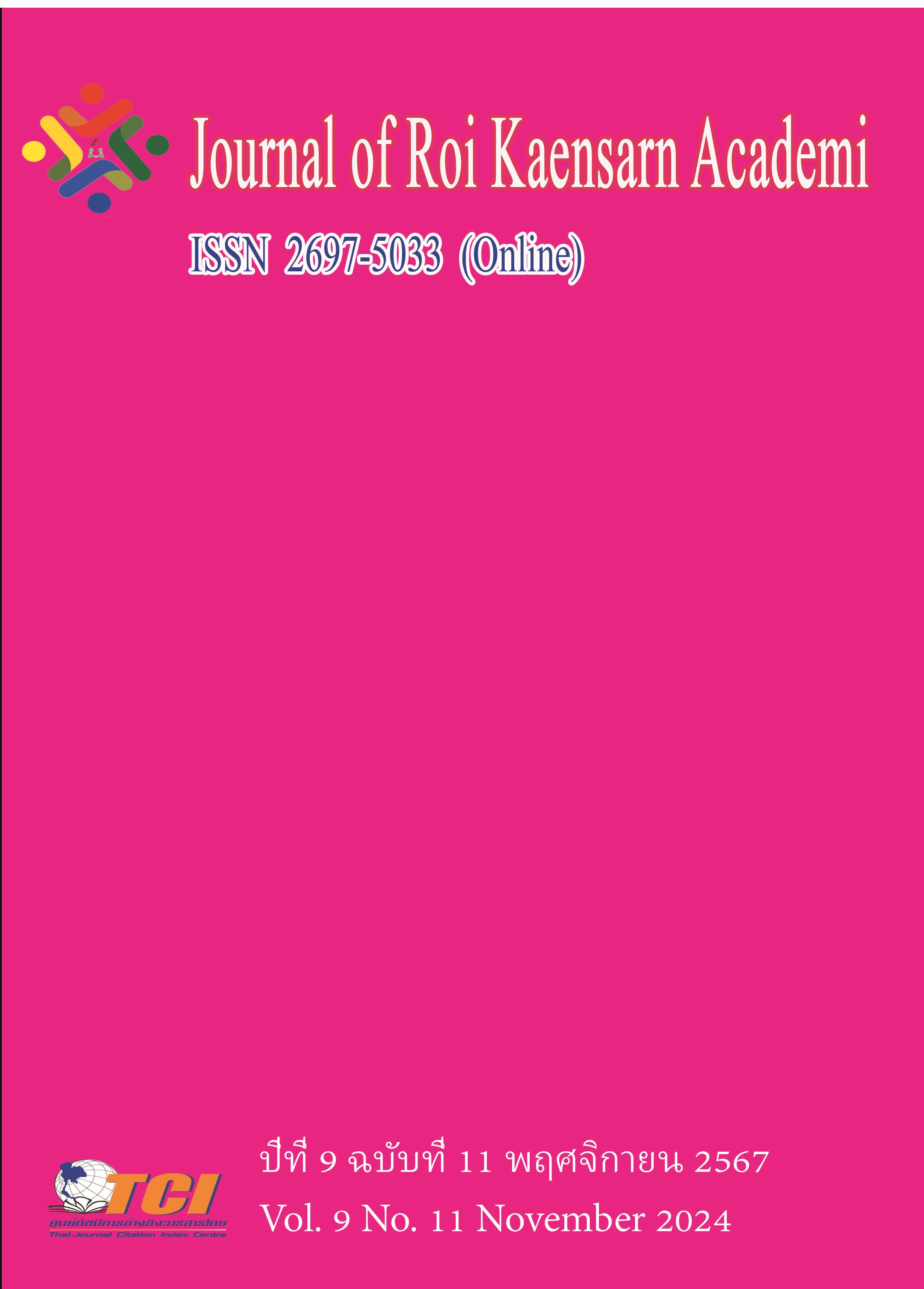A Study on the Current Situation of Foreign Language Achievement Goal Orientation among Chinese College Students——Taking College Students from Province A as an Example
Main Article Content
บทคัดย่อ
This study uses 702 undergraduate students in colleges and universities in Province A as the research subjects, and uses SPSS27.0 software to analyze relevant data to explore the current status of achievement goal orientation in foreign language learning among Chinese college students. The study found that there was no significant difference in achievement goal orientation and its three dimensions, namely, achievement approach goal orientation, achievement avoidance goal orientation, and mastery goal orientation, among college students of different genders; there was no significant difference in achievement goal orientation and its two dimensions, namely, achievement approach goal orientation and mastery goal orientation, among college students of different grades, but in terms of achievement avoidance goal orientation, freshmen, sophomores, and seniors were higher than juniors; there was no significant difference in achievement goal orientation and achievement approach goal orientation among college students of different majors in foreign language learning. In terms of achievement avoidance goal orientation, students majoring in education were higher than students majoring in literature and history and economics and management, and students majoring in science and engineering were also higher than students majoring in literature and history and economics and management. In terms of mastery goal orientation, students majoring in economics and management were higher than students majoring in education and science and engineering, and students majoring in arts were higher than students majoring in literature and history, education, and science and engineering.
Article Details
References
Ames, C. (1992). Classrooms: Goals, structures, and student motivation. Journal of Educational Psychology, 84 (3), 261-271.
Cohen, L., Manion, L., & Morrison, K. (2007). Research methods in education. (6th ed.). NY: Taylor & Francis.
Dweck, C. S. (1986). Motivational processes affecting learning. American Psychologist, 41 (10), 1040-1048.
Dweck, C. S., & Leggett, E. L. (1988). A social cognitive approach to motivation and personality. Psychological Review, 95 (2), 256-273.
Elliot, A. J. (1997). Integrating the "classic" and "contemporary" approaches to achievement motivation: A hierarchical model of approach and avoidance motivation. In M. Maehr & P. Pintrich (Eds.), Advances in motivation and achievement (Vol. 10, pp. 143-179). Greenwich, CT: JAI.
Elliot, A. J. (2006). The hierarchical model of approach-avoidance motivation. Motivation and Emotion, 30 (2), 111-116.
Elliot, A. J., & Harackiewicz, J. M. (1996). Approach and avoidance achievement goals and intrinsic motivation: A mediational analysis. Journal of Personality and Social Psychology, 70 (3), 461-475.
Elliot, A. J., & McGregor, H. A. (2001). A 2×2 achievement goal framework. Journal of Personality and Social Psychology, 80 (3), 501-519.
Fan, Y., & Sun, Y. (2023). Evaluation report on the achievement goal orientation of college students in private universities. Shanxi Youth, (22), 58-60.
Fang, P., Zhang, Y., & Guo, C. (1999). Research progress on achievement goal theory. Psychological Dynamics, (01), 70-75.
Karabenick, S. A., & Knapp, J. R. (1991). Relationship of academic help seeking to the use of learning strategies and other instrumental achievement behavior in college students. Journal of Educational Psychology, 83 (2), 221-230.
Liu, Y. (2022). Research on the influencing factors and coping strategies of college students' academic boredom (Doctoral dissertation). Harbin Normal University, Harbin.
Lodico, M., Spaulding, D., & Voegtle, K. (2010). Methods in educational research: From theory to practice (2nd ed.). San Francisco, CA: Jossey-Bass.
Pintrich, P. R. (2000). The role of goal orientation in self-regulated learning. In M. Boekaerts, P. R. Pintrich, & M. Zeidner (Eds.), Handbook of self-regulation: Theory, research, and applications (pp. 451-502). San Diego, CA: Academic Press.
Skaalvik, E. M. (1997). Self-enhancing and self-defeating ego orientation: Relations with task and avoidance orientation, achievement, self-perceptions, and anxiety. Journal of Educational Psychology, 89 (1), 71-81.
Tu, X., & Yang, X. (2021). The relationship between achievement goal orientation and middle school students' mathematics learning engagement: The mediating role of mathematics anxiety. Journal of Southwest University (Natural Science Edition), 43 (04), 27-35.
Wang, J., Yao, M., & Liu, H. (2022). The relationship between achievement goals and teachers' sense of efficacy, anxiety, and work engagement: Based on the perspective of variable center and individual center. Psychological and Behavioral Research, (01), 122-129.
Wang, Z. (2009). Cognitive theory and application of learning motivation. Beijing: China Social Sciences Press.
Wei, X. (2014). Structural analysis of foreign language learning goal orientation, learning anxiety and autonomous learning behavior among college students. Foreign Language World, (04), 12-20+38.
Wu, J., & Fu, H. (2024). Meta-analysis of the relationship between achievement goal orientation and academic performance: The mediating role of self-efficacy and learning engagement. Advances in Psychological Science, 32 (07), 1104-1131.
Xu, X. (2018). The relationship between achievement goal orientation and academic adaptation of high school students: A three-year follow-up study (Doctoral dissertation). East China Normal University, Shanghai.
Yang, S., Pan, B., Wang, T., & Si, J. (2018). The bidirectional relationship between achievement goal orientation and academic performance in primary school students: A cross-lagged analysis. Psychological and Behavioral Research, 16 (01), 81-87.
